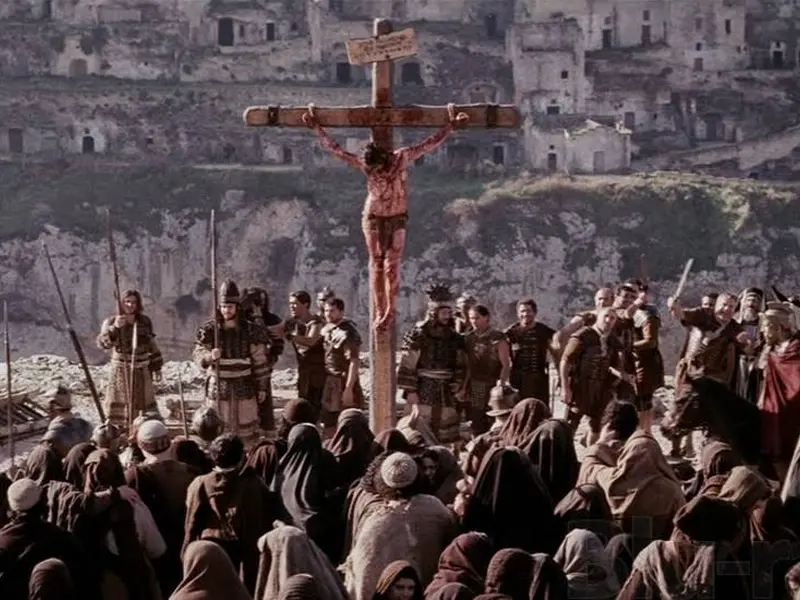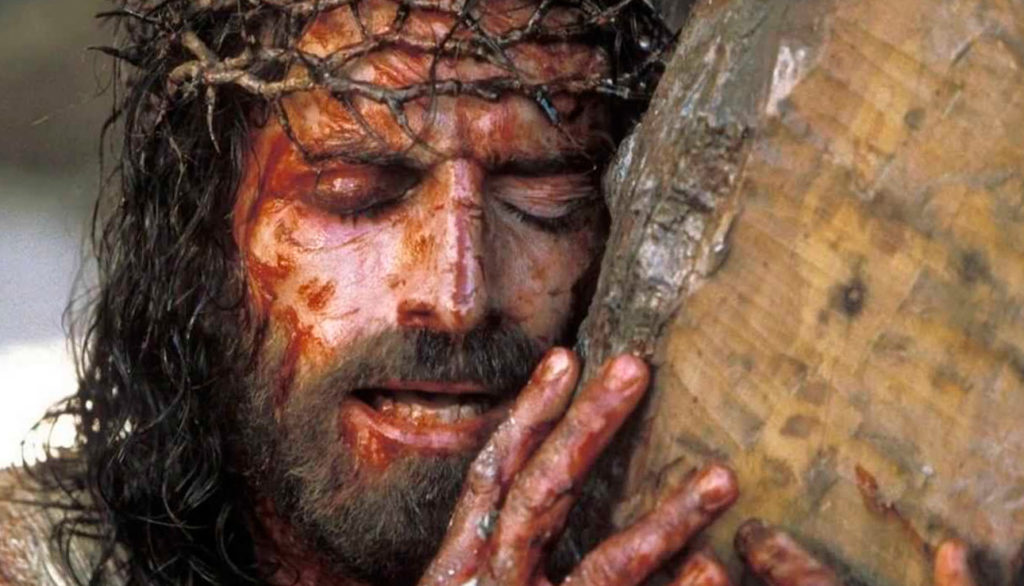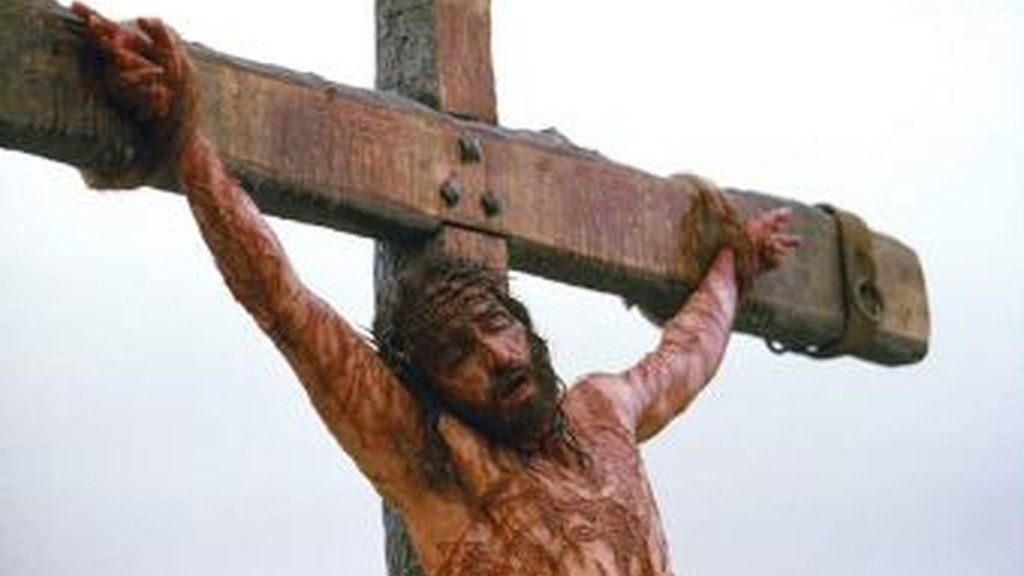
The Good Friday is a day of sorrow, silence, contemplation and profound reverence. It is the day in which the Church commemorates the Passion and the death of the Lordan event that forever transformed the history of mankind.
For Christians, this day is not only a day of remembrance, but a living invitation to look at the holy cross with the eyes of faith, as it did St. Josemaría Escrivádiscovering in it the greatness of God's love and the path to holiness. "When you see a poor wooden Cross, alone, despicable and worthless... and without a Crucifix, do not forget that this Cross is your Cross: the Cross of every day, the hidden Cross, dull and without consolation..., which is waiting for the Crucifix it lacks: and that Crucifix must be you" (The Way, 178).
The death of the Lord on the Cross is not a senseless tragedy, but the supreme act of God's love for humanity. Jesus freely gives his life for each one of us, bearing on his shoulders the weight of the world's sin. His Passion is not only a historical fact, but a Mystery that is actualized in each of us. Eucharist and that deeply challenges the heart of each person.
For St. Josemaría EscriváThe Cross of Christ is the clearest expression of that divine love that does not stop in the face of suffering. He said: "The Cross is the school of love".
Contemplate the death of the Lord should not lead us to discouragement, but to hope. In that moment of sorrow, the way to eternal life opens for us. The silence of Calvary is not empty: it is full of meaning, of self-giving, of redemption.
St. Josemaría insisted that we Christians are called to unite our little sufferings to those of Christ. In this way, our own "deaths"-the renunciations, the sicknesses, the sacrifices for love-become fruitful as well. In the words of the founder of Opus Dei: "Every day you have to die a little, if you really want to live: die to selfishness, to comfort, to pride... That is the death that gives life."
The death of the LordIt is not the end: it is the beginning of a new existence, reconciled with God. It is the door that opens the Resurrection. And so, the Good FridayAlthough marked by solemnity, it also contains within it the light of victory.

Saint Josemaría Escrivá offered a profound perspective on the meaning of the cross. For him, the Cross was not only a symbol of suffering, but a manifestation of God's redemptive love and a call to holiness in daily life. In his teachings, he emphasized that every Christian is called to embrace his or her own daily cross with love and dedication, seeing in it a path to union with Christ.
"The Cross ceased to be a symbol of punishment to become a sign of victory. The Cross is the emblem of the Redeemer: in quo est salus, vita et resurrectio nostraTherein lies our health, our life and our resurrection" (Via Crucis, II station). These words of St. Josemaría summarizes Christian hope: pain is not sterile if it is united to the sacrifice of Christ.

The Good FridayTherefore, it not only recalls the sacrifice of Jesus, but also inspires Christians to live with hope and commitment.
Accepting daily crosses - big or small - with faith is an act of love and trust in God, and a concrete way of imitating Christ.
The death of the Lord was not the end, but the beginning of a new life for all. This is how he understood it St. Josemaríawho taught to see Christ also in suffering, and to transform daily life - even difficulties - into a holy offering.
"The Christian teaching on suffering is not a program of easy consolations. It is, first of all, a doctrine of acceptance of that suffering which is in fact inseparable from every human life. I cannot hide from you - with joy, because I have always preached and tried to live that, where there is the Cross, there is Christ, Love - that pain has often appeared in my life; and more than once I have felt like crying. At other times, I have felt my disgust grow in the face of injustice and evil. And I have tasted the discomfort of seeing that I could do nothing, that - in spite of my desires and my efforts - I could not manage to improve those iniquitous situations.

When I speak to you about suffering, I am not just talking about theories. Nor do I limit myself to the experience of others, confirming to you that if, in the face of suffering, you ever feel your soul wavering, the remedy is to look to Christ. The scene of Calvary proclaims to all that afflictions are to be sanctified if we live united to the Cross.
Because our tribulations, lived as Christians, become reparation, atonement, participation in the destiny and life of Jesus, who voluntarily experienced the whole range of pain, all kinds of torments, out of love for mankind. He was born, lived and died poor; he was attacked, insulted, defamed, slandered and unjustly condemned; he knew betrayal and abandonment by his disciples; he experienced loneliness and the bitterness of punishment and death. Even now Christ continues to suffer in His members, in the whole of humanity that populates the earth, and of which He is the Head, and Firstborn, and Redeemer.
Pain enters into God's plans. That is the reality, even if it is difficult for us to understand it. Also, as Man, it was hard for Jesus Christ to bear it: Father, if you are willing, take this cup away from me; yet not my will, but yours be done.36. In this tension of torture and acceptance of the Father's will, Jesus goes to his death serenely, forgiving those who crucify him.
Precisely, this supernatural admission of pain is, at the same time, the greatest conquest. Jesus, dying on the Cross, has conquered death; God brings life out of death. The attitude of a child of God is not that of one who is resigned to his tragic misfortune; it is the satisfaction of one who already expects victory. In the name of that victorious love of Christ, we Christians must set out on all the roads of the earth, to be sowers of peace and joy with our word and our deeds. We must fight - the struggle of peace - against evil, against injustice, against sin, in order to proclaim that the present human condition is not the definitive one; that the love of God, manifested in the Heart of Christ, will achieve the glorious spiritual triumph of mankind". (It is Christ who passes, 168).